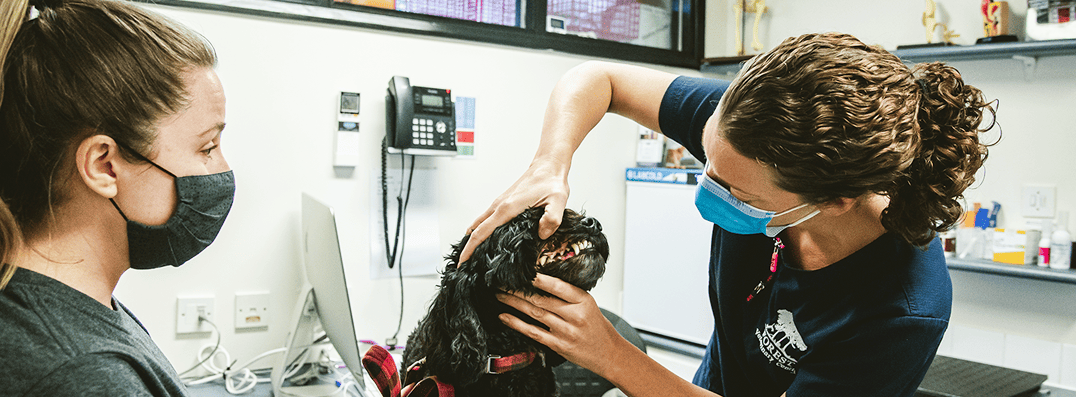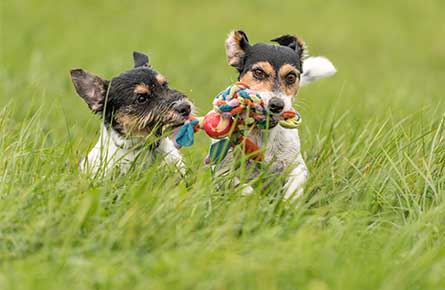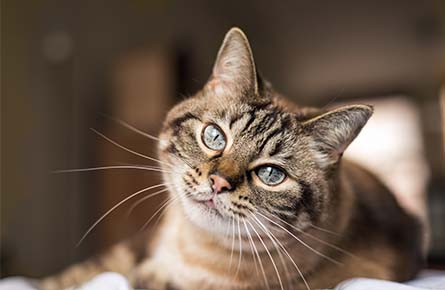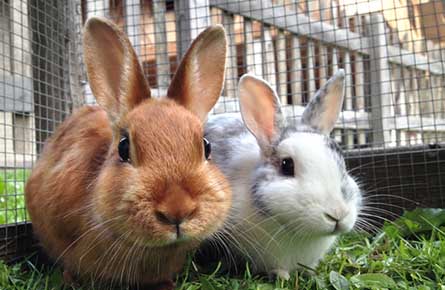Dental disease is an extremely common problem in our pets in Essex and can lead to chronic pain and infection or sometimes more serious complications. Here at Forest Vets, we understand that your pet’s dental hygiene is just as important as any other routine and preventative treatment. Like humans, pets can develop a build-up of plaque and tartar which leads to periodontal disease and irreversible loss of teeth; brushing your pet's teeth once or twice a day is the best option for good oral hygiene and prevention of periodontal disease. We will examine your pet's teeth at their routine annual checkups and make a recommendation if any treatment is necessary.
Should treatment be required, dental procedures are performed under general anaesthetic with an endotracheal tube and throat pack to protect the airway. We use a staged approach to dental treatment at Forest Vets to improve preventative dental care in our patients. During a Stage One dental procedure, we de-scale and clean the teeth, perform a complete oral and dental examination, take a complete set of dental radiographs, and chart any abnormalities we detect. This is much like seeing the dentist and the hygienist to help keep your own teeth healthy. We have set this stage to be a lower-cost, more accessible procedure because we want to be in the business of helping you keep your pet's teeth healthy and intact throughout their entire life. Having several, short, Stage One dental procedures throughout our pet's lifetime can prevent the need for much longer anaesthetics and costly large-scale extractions especially when combined with ongoing at-home dental hygiene.
If there are abnormalities found during a Stage One dental procedure, then we will discuss with you the recommended treatment that would be performed during a Stage Two dental procedure. In some cases, this might be done on the same day, but often we elect to perform some or all of the treatment on another day much like if your dentist books you to have a filling to be done on another day. By separating the two stages, we can also show you the problems found during the complete oral and dental examination and on the dental radiographs, have a comprehensive discussion about dental treatment options, and provide you with a more accurate idea of costs due to having a more complete picture of the severity of periodontal disease.
Signs of dental disease in pets
- Bad breath (halitosis)
- Visible tartar build-up on teeth
- Red or inflamed gums (gingivitis)
- Discoloured teeth
- Drooling
- Loose teeth
- Bleeding from the mouth
- Slowness or reluctance to eat
- Chewing on one side of the mouth
- Dropping food from the mouth when eating
- Swelling around the mouth (from potential tooth root abscesses)
We are happy to answer any questions you may have, as well as advising you on the recommended products or dental diets for your pet. Contact Forest Vets for a consultation.
Find out more about dental care for your dog, cat or rabbit by clicking the links below:




